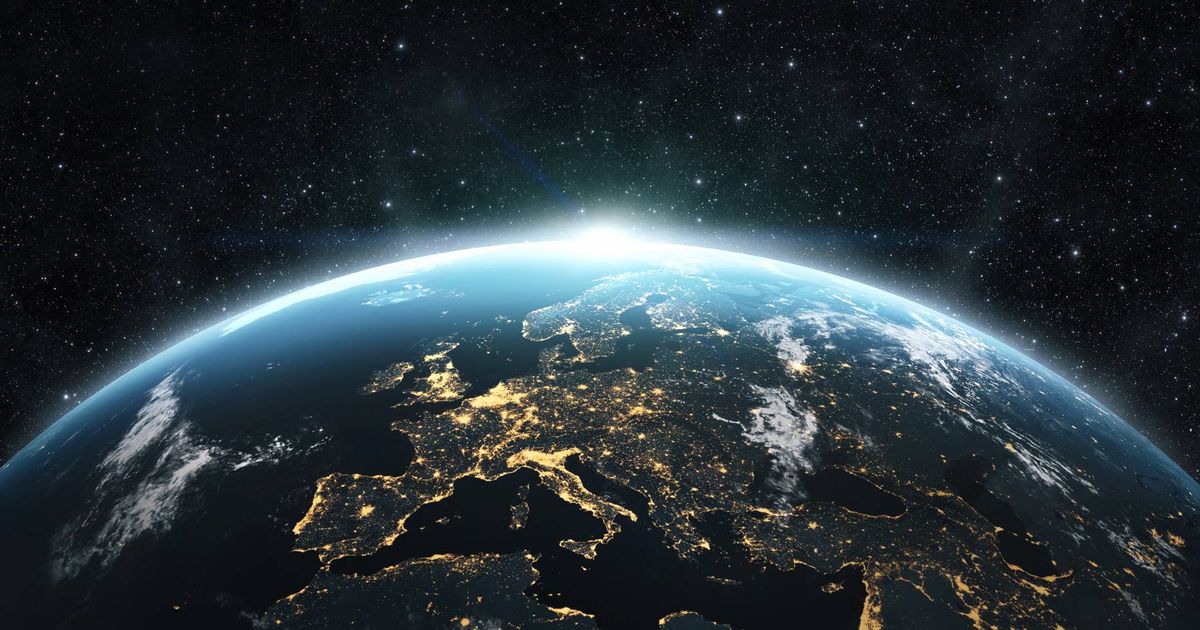Science
Harvard Scientist Claims Breakthrough Math Proves Existence of God

A Harvard scientist, Dr. Willie Soon, has stirred significant discussion by asserting that he has mathematically demonstrated the existence of a higher power. His claims, made during an appearance on The Tucker Carlson Network, suggest that the universe’s intricate physical conditions point to the presence of a divine creator.
Dr. Soon, an astrophysicist affiliated with Harvard and the Smithsonian Institution, argues that the concept of “fine-tuning” highlights the extraordinary precision of the universe’s conditions necessary for life. He believes that the remarkable improbability of these conditions occurring by mere chance supports the idea of an intelligent designer.
Linking Mathematics and Divine Design
The foundation of Dr. Soon’s argument is rooted in a theory first proposed by physicist Paul Dirac in 1963. Dirac suggested that the mathematical elegance observed in the laws of nature implies a superior intelligence. He stated, “It seems to be one of the fundamental features of nature that fundamental physical laws are described in terms of mathematical theory of great beauty and power.” This idea posits that the universe’s complex structure is not random, but rather a product of advanced mathematical principles.
Continuing this line of thought, Dr. Soon expressed on the program that, “There are so many examples of the ever-present forces that allow us to illuminate our lives. God has given us this light, to follow the light and do the best that we can.” His phrasing resonates with the traditional design argument, which compares the universe to a timepiece; the complexity of a timepiece suggests a clockmaker, just as the intricate workings of the universe imply an intelligent creator.
Responses and Counterarguments
Despite the fervor surrounding Dr. Soon’s assertions, not all experts share his viewpoint. Critics of the fine-tuning argument present two main counterarguments. First, they point out that our understanding of the universe remains limited. While humans exist as carbon-based life forms, it is conceivable that life could exist in alternate universes constructed on different physical principles or elements.
The second argument challenges the idea that the universe’s existence must be the result of design rather than chance. Many improbable occurrences happen throughout the cosmos, and some experts maintain that the universe’s existence, regardless of its improbability, can be attributed to random chance.
The ongoing debate between science and religion regarding the origins of the universe continues to spark interest and controversy. Dr. Soon’s claims exemplify the complex relationship between faith and scientific inquiry, inviting both admiration and skepticism. As discussions unfold, the discourse around the intersection of mathematics, physics, and theology remains a fertile ground for exploration and dialogue.
-

 Entertainment4 weeks ago
Entertainment4 weeks agoAimee Osbourne Joins Family for Emotional Tribute to Ozzy
-

 Politics4 weeks ago
Politics4 weeks agoDanny Healy-Rae Considers Complaint After Altercation with Garda
-

 Top Stories1 week ago
Top Stories1 week agoIreland Enjoys Summer Heat as Hurricane Erin Approaches Atlantic
-

 World1 month ago
World1 month agoHawaii Commemorates 80 Years Since Hiroshima Bombing with Ceremony
-

 Top Stories1 month ago
Top Stories1 month agoFianna Fáil TDs Urgently Consider Maire Geoghegan-Quinn for Presidency
-

 World1 month ago
World1 month agoGaza Aid Distribution Tragedy: 20 Killed Amid Ongoing Violence
-

 World1 month ago
World1 month agoCouple Convicted of Murdering Two-Year-Old Grandson in Wales
-

 Top Stories1 month ago
Top Stories1 month agoClashes Erupt Between Far-Right Groups and Migrants in Spain
-

 World1 month ago
World1 month agoAristocrat Constance Marten and Partner Convicted of Infant Murder
-

 Top Stories1 month ago
Top Stories1 month agoHistoric Dalkey Pub The Queens Reopens Under New Management
-

 World1 month ago
World1 month agoTrump Defends FBI Deputy Director Amid Epstein Files Controversy
-

 Politics1 month ago
Politics1 month agoTragic Crowd Surge at Gaza Aid Center Claims 20 Lives









